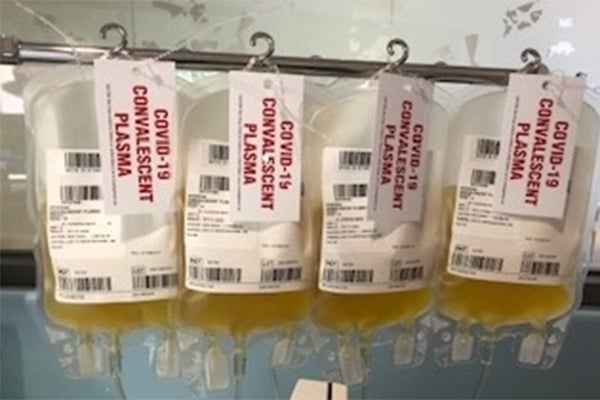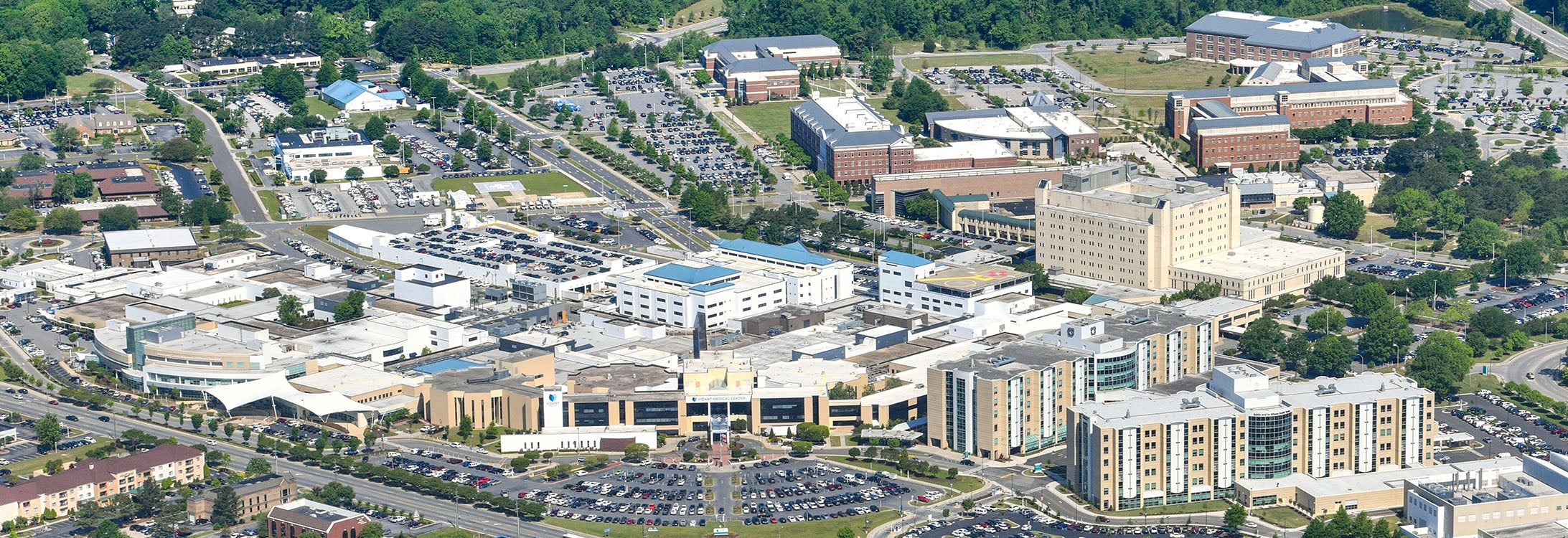COVID-19 ANTIBODY TREATMENT
ECU, Vidant conducting COVID-19 antibody clinical procedure
Physicians from East Carolina University’s Brody School of Medicine and Vidant Health are performing a clinical procedure that uses antibodies from people who have recovered from COVID-19 to treat patients suffering from the novel coronavirus.
On April 23, a COVID-19 patient at Vidant Medical Center was one of the first in North Carolina to receive antibodies from a plasma donor – through a process called plasmapheresis – who previously had a documented case of COVID-19.

Plasma from people who have recovered from COVID-19 is being used to treat patients suffering from the novel coronavirus. (Contributed photo)
“If a flu bug comes through and you get exposed to it, your body produces antibodies and you are less likely to get it again. Well this is a new virus, nobody’s had it yet and this is a particularly nasty virus. So, we really want people to be able to have that innate immunity,” said Dr. Paul Bolin Jr., chair of internal medicine at ECU’s Brody School of Medicine. “The trouble is, we don’t have a vaccine, which is the other way to develop immunity. So what we’re doing now is passively giving someone antibodies to replace that missing step in our native immune system to this fight disease.”
Nearly 20 local patients have since received the antibody serum, though Bolin said the clinical investigation is part of a collaborative effort with the Mayo Clinic and major clinics nationwide that already has more than 16,000 patients in the study.
Bolin said it was too early in the clinical investigation to determine the effectiveness of the antibodies in treating COVID-19, but the results to this point have been encouraging.
Patients with the most severe cases of COVID-19, such as those who developed pneumonia, were among the first to receive the antibodies.
“Because COVID-19 moves very quickly from shortness of breath to needing some type of artificial support to help patients breathe, we’re trying to move the study to where we’re able to administer it earlier and earlier in the course of the symptoms,” Bolin said.
The antibody effort represents the value of collaboration between ECU and Vidant, said Brian Floyd, president of Vidant Medical Center. The partnership has long brought innovation to the East and this procedure is no different.
“I am proud of the ECU and Vidant team members leading this important work,” said Floyd. “As an academic medical center, VMC supports innovative efforts that meet our organization’s mission to improve the health and well-being of eastern North Carolina. Alongside our partners at ECU and the Mayo Clinic, we are consistently striving towards collaborative solutions.”
ECU and Vidant receive their blood and plasma donations through The Blood Connection, which works to confirm the donors have a documented positive COVID-19 laboratory test while they were still sick or, if they weren’t tested previously, a positive antibody test after they have recovered. Patients can donate blood after they have been symptom free from at least 14 days.
Martha Dartt, chief nurse executive for ECU Physicians – the medical practice of the Brody School of Medicine, said that every ECU Physicians patient who has been contacted after reaching that 14-day milestone has given permission to be called about plasma donation.
“It really speaks to the kindness and character of eastern North Carolinians,” Dartt said, “that they are willing to donate plasma to strangers after they have just recovered from COVID-19.”
Bolin added that the ECU and Vidant partnership helps provide patients in eastern North Carolina with access to potential clinical treatments, such as this national clinical investigation.
And even though COVID-19’s impact on the region has not reached the levels as seen in other hard-hit places of the world, Bolin said that the academic nature of the ECU and Vidant partnership has enabled them to bring the processes and lessons learned in places such as New York, China and Italy to bear locally.
“We have extraordinary people working here, in the MICU and all the way through our units,” Bolin said. “Their ability to adapt and learn how to manage this new disease is inspiring.”
